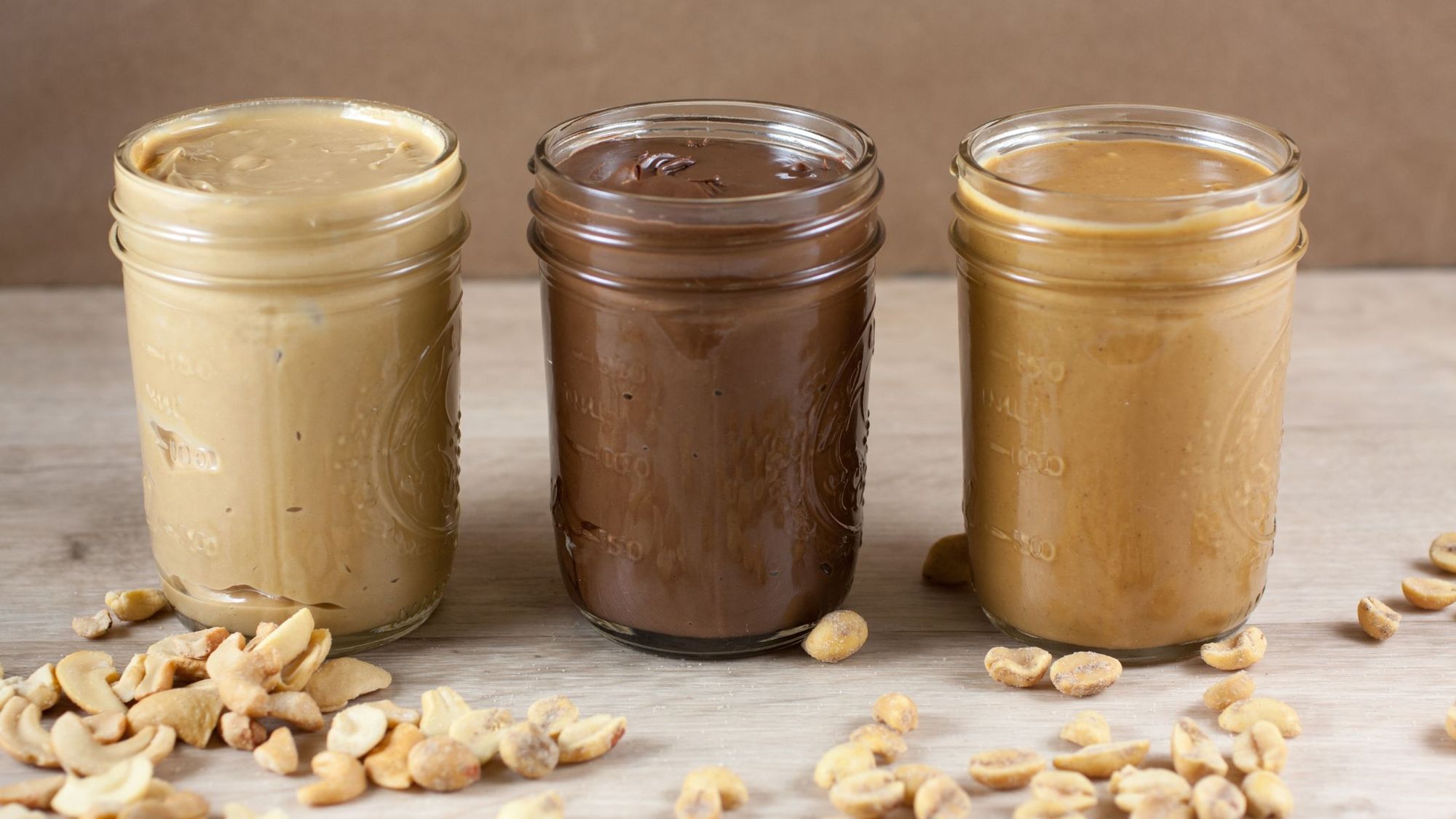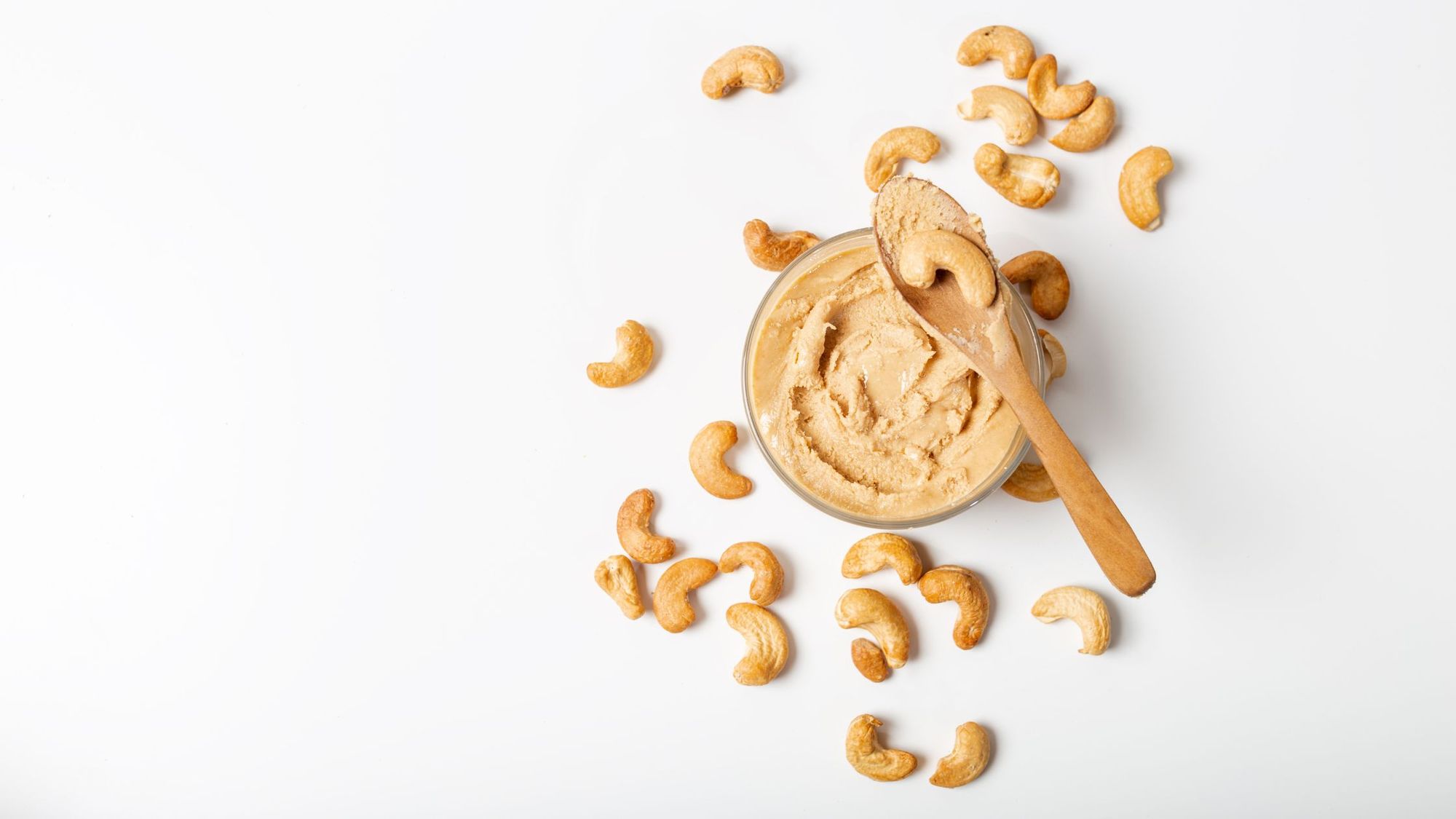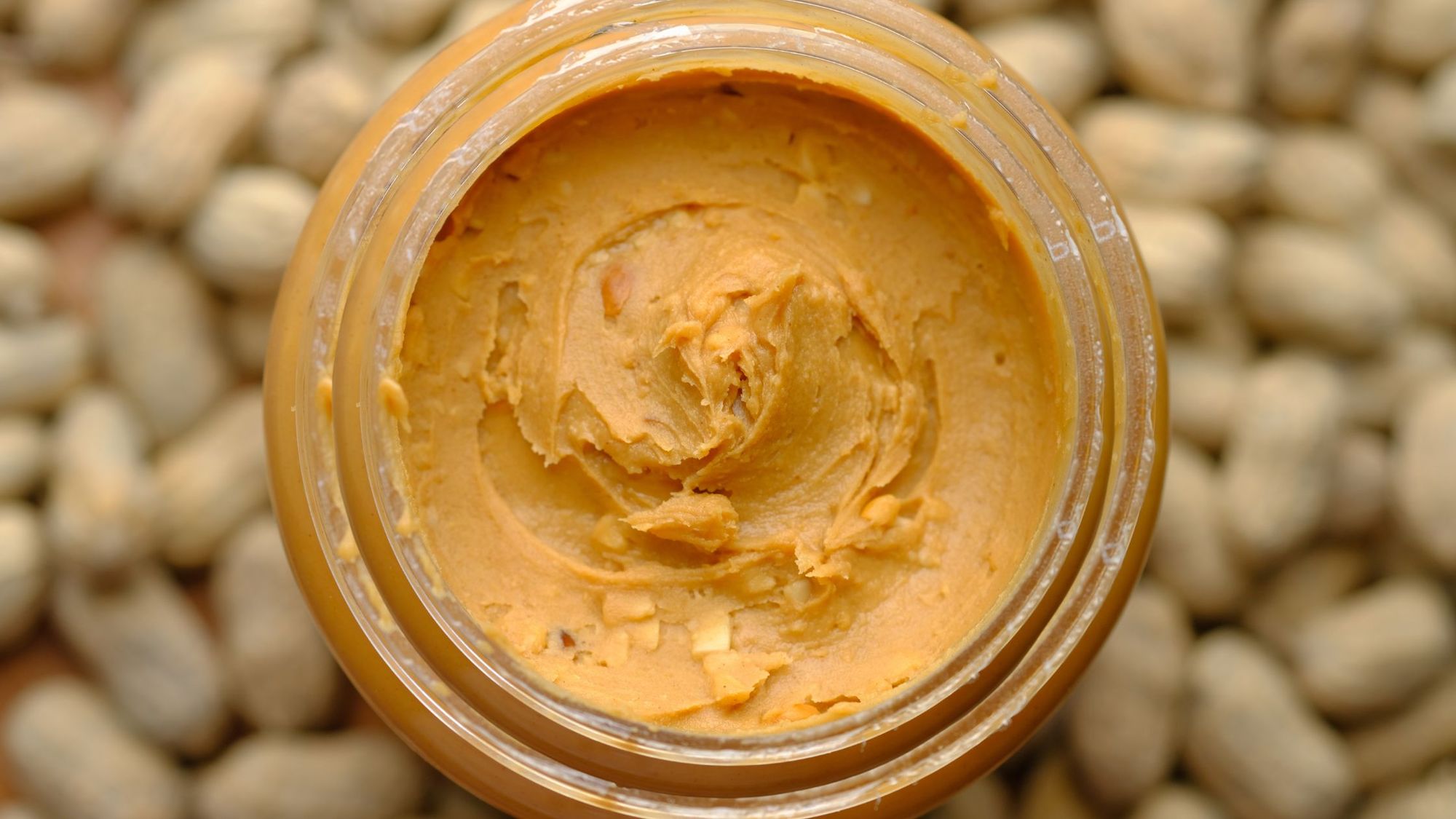
To understand the healthiest nut butters, it’s important to first understand which nuts are the healthiest. For example, although peanut butter is one of the most popular nut butters, it’s not going to be at the top of the list when it comes to healthiest nut butters. Peanut butter does contain a good amount of protein and some healthy minerals, but other options are healthier.
Other nut butters such as almond butter and cashew butter have more vitamins, minerals and essential nutrients than peanut butter. This is because those nuts contain more vitamins and minerals than peanuts. When searching for the best healthy nut butters, you should not only take into account the nut used, but also the brand and whether or not it’s an organic or natural nut butter.
Healthy nut butters are a great item to put on your grocery list, because even a small amount on toast is extremely filling. This means that when you put nut butter on a slice of whole grain toast, on whole grain crackers, or use it as a dip for your slices of apple, you’ll definitely feel full and satisfied compared to if you ate those foods plain. You’re therefore less likely to overeat.
Nut butters generally provide a good amount of protein, healthy fats, fiber, vitamins and minerals, but some are better than others.
A bonus of using nut butters instead of buying jars of nuts is portion control.
When we have a jar of nuts, many of us tend to eat nuts by the handful, which is not good since the suggested serving size of nuts is typically only about 30g. You can’t eat handfuls of nuts since they’re very calorie-dense.
Nut butters make it easier to maintain portion control. Just spread a tablespoon or two on whole wheat toast, and you’ll be satisfied.
Below are some of the healthiest nut butters available today:

1. Cashew Butter: One of the Healthiest Nut Butters That Tastes Great
The great thing about cashew butter is that it’s got a naturally sweet and satisfying taste without being high in sugar.
Cashews are generally ranked as one of the most delicious types of nuts, and as an added bonus, they’re high in magnesium, zinc and iron which are essential nutrients your body needs more of.
Cashews are also great for heart health, and can improve the health of your hair as well.

2. Almond Butter: Tastes Amazing and High in Healthy Fats and Calcium
Almonds contain healthy fats which make them great for your heart health, and almond butter is one of the tastiest and healthiest nut butters.
Almond butter goes great in smoothies. Just add a spoonful of it to your morning smoothie along with some unsweetened almond milk and a banana. This low-calorie and healthy smoothie is a great snack or breakfast idea.
Another healthy and filling snack involving almond butter is to use a small amount of almond butter as a dip when you’re eating slices of apple as a snack.
Almonds also contain a good amount of fiber, vitamin E, and almonds are the nut with the highest calcium content as well.
3. Walnut Butter: Fantastic for Brain Health and Rich in Essential Minerals
Walnuts are one of the healthiest nuts out there, which is why one of the healthiest nut butters is walnut butter.
Walnuts are a nutrient-dense food known as a ‘superfood’ as they’re a fantastic source of omega-3 fatty acids which makes them incredible for brain health.
Walnuts are also great for your gut health, their antioxidant content, and their content of vitamin E. This vitamin, along with heart-healthy fats found in walnuts, have anti-inflammatory properties for those with chronic inflammation in the body. This means that addition to being a superfood known for improving heart health and brain health, walnuts are also an anti-inflammatory food. It’s no wonder why walnut butter is one of the top healthy nut butters.
The cancer-fighting properties of the antioxidants found in walnuts have been researched. Eating walnuts can also help reduce your risk of heart disease, lower your blood pressure and lower your cholesterol levels.
Some people claim that walnut butter is a slightly acquired taste, but you can easily drizzle a tiny bit of honey on top of your walnut butter toast, and it’ll taste amazing.
4. Peanut Butter: The Highest Protein Nut Butter and a Good Source of Iron
Peanut butter is a classic nut butter rich in protein. This ultra-popular nut butter may not be at the top of our list of healthiest nut butters, but it’s one of the healthy nut butters as long as you get a natural version and not an unhealthy commercial brand.
Commercial and cheaper brands of peanut butter such as Kraft Peanut Butter (which you’ll often see at the store) tend to have added sugars and oils in them. To reap the health benefits from peanut butter, look for all-natural products without added ingredients that are going to deplete their healthiness.
Peanut butter contains a good amount of iron and folate to help prevent anemia, magnesium, vitamin B6, zinc, and potassium for your muscles and to reduce muscle cramps.
There’s no denying that peanut butter tastes great as a dip for apple slices, on toast, in smoothies, and on crackers.
5. Hazelnut Butter: Free of Natural Sugars and Great for Heart Health
Now, when we talk about hazelnut butter being one of the healthiest nut butters, we are not talking about Nutella which has tons of added sugar.
We’re talking about organic, natural hazelnut butter.
However, part of the reason why so many people love Nutella is because of how tasty hazelnuts are. Regular hazelnut butter will still taste great, and it’s actually one of the healthy nut butters that’s becoming more and more popular.
Hazelnuts are the second-richest nut in monounsaturated fat and have anti-inflammatory properties that can help manage blood lipids. All of this is what makes them an excellent nut to eat for better heart health.
Hazelnuts are also rich in numerous vitamins and minerals, especially vitamin E.
Incorporating Nut Butters into Your Diet
It’s easy to incorporate nut butter into your diet. Simply:
- Look for natural nut butters the next time you’re at the grocery store or health food store.
- Select a healthy nut butter that is made from a nut you know for certain you’re not allergic to (check for nut allergies before trying any new nut butters or nuts) and one you like the taste of.
- Experiment putting a tablespoon or two of nut butter on your protein pancakes, on whole wheat toast, in smoothies, or as a dip for apple or banana slices.
- Try not to consume more than 1 – 2 tablespoons in one sitting.
To get very insightful information about the optimal diet plan for you based on your DNA, why not take the time to take a quick CircleDNA test to see what kind of foods might benefit your body the most? You’ll discover which foods you might need to eat more or less of, based on your genetic makeup.
References:
- NCBI, The Effect of Cashew Nut on Cardiovascular Risk Factors and Blood Pressure: A Systematic Review and Meta-analysis (P06-117-19):https://www.ncbi.nlm.nih.gov/pmc/articles/PMC6573847/
- NCBI, Health benefits of almonds beyond cholesterol reduction: https://pubmed.ncbi.nlm.nih.gov/22296169/
- Science Direct, Dietary walnut altered gene expressions related to tumor growth, survival, and metastasis in breast cancer patients: a pilot clinical trial: https://www.sciencedirect.com/science/article/pii/S0271531718311904
- NCBI, A Hazelnut-Enriched Diet Modulates Oxidative Stress and Inflammation Gene Expression without Weight Gain: https://www.ncbi.nlm.nih.gov/pmc/articles/PMC6637671/





